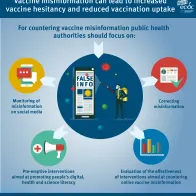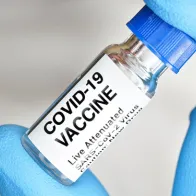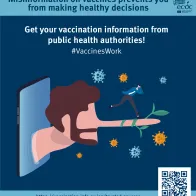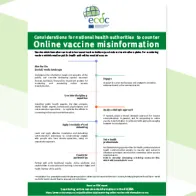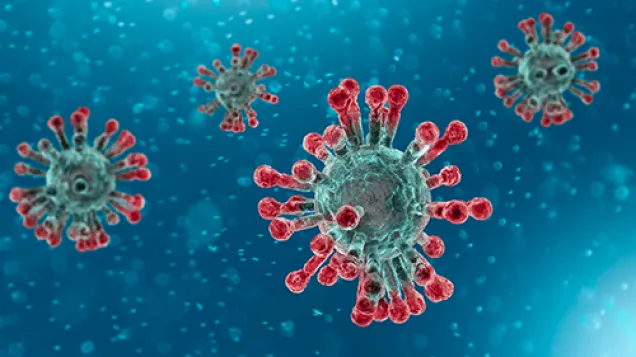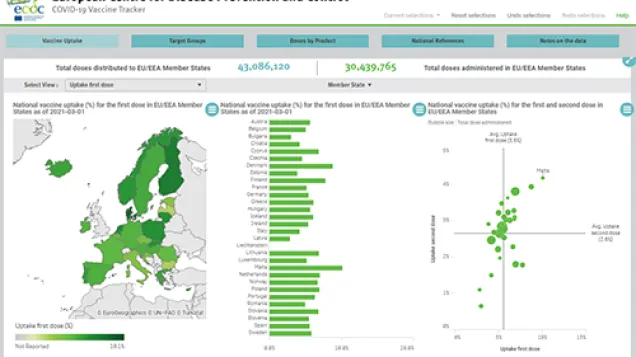Countering online vaccine misinformation in the EU/EEA
Executive Summary
Vaccines authorised by the European Medicines Agency for use in the European Union (EU) are known to be safe and effective in preventing infectious diseases. Nonetheless, misinformation that incorrectly links these vaccines to harms to health or other undesirable consequences has, over recent years, continued to proliferate online and elsewhere.
Misinformation about vaccines is not a new phenomenon, but it has become more prominent due to the rise of social media and, more recently, due to the emergence of the COVID-19 pandemic. The pandemic has clearly illustrated how easily misinformation can spread online and how rapidly new narratives can emerge and evolve. Vaccine misinformation can be dangerous: it decreases confidence in vaccines and can lead to vaccine hesitancy and reduced vaccination uptake.
Public health authorities can play an important role in identifying and countering online vaccine misinformation to limit the harm it can do to a country’s vaccination efforts. In order to do this effectively, however, they need to have a good understanding of the landscape of vaccine misinformation in their respective countries, and of the tools and strategies that are available to fight misinformation effectively. This study, commissioned by ECDC, thus set out to explore:
- The main sources of online vaccine misinformation in the EU/European Economic Area (EEA);
- The evidence base for how to counter online vaccine misinformation;
- The current strategies used by national public health authorities in the EU/EEA and other organisations to counter online vaccine misinformation; and
- The training needs of national public health authorities in the EU/EEA for how to develop effective strategies for countering online vaccine misinformation.
The study applied a mixed-methods approach consisting of qualitative and quantitative research methodologies, including a literature review, interviews with representatives of national public health authorities of six EU Member States (MS) and several pan-European and global organisations involved in countering vaccine misinformation, and a social media analysis in the six selected countries (Estonia, France, Germany, the Netherlands, Spain, and Romania). The focus of this study was misinformation relating to vaccination against measles (in combination with mumps and rubella), human papillomavirus (HPV), influenza, and COVID-19.
The findings from this study provide insights for national public health authorities into the factors behind the spread of vaccine misinformation online and the options and capacities needed for responding to it. The findings will also serve to inform the development of a training package to support those authorities (and other interested organisations) in their work in this area.
Countering online vaccine misinformation in the EU/EEA
English (5.32 MB - PDF)Read more
Share this page

